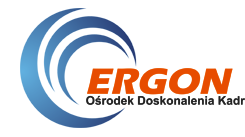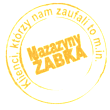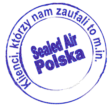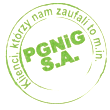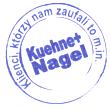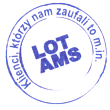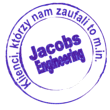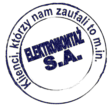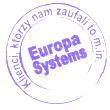IRATA rating training - L3 level
Who is the IRATA Level 3 course for?
Level three in the IRATA system is for those with a level two certificate who have at least one year of service and 1,000 hours of experience. This is the stage for those who want to take on more responsibility - managing a team, organising operations and ensuring that procedures are followed. The programme prepares you for the role of a leader who is responsible for the course of altitude work, the safety of colleagues and documentation in accordance with international standards. Completing this course allows you not only to improve your qualifications, but also to realistically increase your value on the labour market and open yourself up to new career opportunities.
Certification process and examination
IRATA's level three training is advanced in nature and combines extensive rope techniques with organisational competence and knowledge of procedures and regulations. Among other things, participants learn how to solve complex technical problems, plan and conduct rescue operations, assess hazards and create full operational documentation. An important part of the programme is the preparation for supervising a team - taking into account safety standards, international regulations and management practice in dynamic field conditions.
The course concludes with a theoretical and practical exam conducted by an independent assessor accredited by IRATA. Upon successfully passing it, the participant receives an IRATA L3 certificate, valid for 3 years. After this period, it is required to be renewed according to current procedures.
Responsibility and competence of the leader
The IRATA L3 qualification confirms readiness for a supervisory role in a team of rope technicians. A person at this level is responsible for organising work in the field, making day-to-day operational decisions, assessing the condition of equipment and enforcing compliance with safety procedures. Skilful hazard recognition and rapid response in non-standard situations are also key. Daily duties also include record keeping, task planning and communication with representatives of other project units.
Career opportunities after L3
L3 technicians are highly regarded among companies carrying out complex tasks in diverse industries. Being certified in this class increases the chances of participating in international contracts, co-designing procedures and participating in audits and inspection activities.
Typical jobs and tasks available for L3 certificate holders:
- team leader of rope access technicians,
- safety and logistics coordinator for work at height,
- specialist in planning and operational documentation,
- IRATA instructor or trainer at authorised training centres,
- Technical consultant to companies in the industrial and offshore sectors,
- technical supervisory representative for international projects.
With the opportunity to choose specialisations, participate in global projects and have greater operational freedom, achieving Level 3 opens the door to more stable and strategic roles in the industry. This certification builds trust with employers, supports development into providing training, inspection or consultancy and allows you to make a real impact on the standards of your teams. For many, this is the moment to combine technical competence with managerial experience and turn it into a long-term career.
Global importance
Today, the IRATA system is regarded as the international benchmark for working at height using rope techniques. The organisation brings together hundreds of companies operating in more than 50 countries, ensuring methodological consistency, uniform training requirements and standardised operating procedures. This approach allows the creation of international teams that work according to the same rules, regardless of where the project is carried out.
The IRATA L3 certificate confirms the highest level of technical and organisational competence and provides a ticket to contracts outside Poland. Participation in international projects becomes a real prospect - without having to undergo additional local training or examinations. Thanks to standardisation, technicians can seamlessly integrate into operational activities in different regions of the world, which significantly increases their professional mobility and attractiveness on the labour market.
L3 as the key to professional independence
IRATA level three is the culmination of the certification pathway, allowing you to enter a higher level of autonomy and responsibility in the profession. L3 certified individuals play a vital role in a project - planning, coordinating operational activities, making decisions in emergency situations and ensuring that work is in line with current procedures. It's a qualification that supports career development into a technical leader, instructor, consultant or specialist
Operations. Completing the L3 course is more than just another entry on your CV - it is a step towards professional stability and a real impact on the quality of the entire team.
FAQ:
Who can join the IRATA L3 course?
The course is open to those with a valid IRATA Level 2 certificate, at least 12 months of experience and a minimum of 1,000 documented IRATA hours.
How long is the IRATA L3 certificate valid?
The IRATA level three certificate is valid for three years. In order to maintain your certification, you must work IRATA regularly and be recertified before the expiry date.
What powers does level three confer?
IRATA L3 allows you to act as an operational leader, overseeing the work of a team of rope technicians, assessing risks, maintaining records and responding to emergencies. Those with this certification can also provide training and work with auditors.
Is L3 level required to work as a rope team leader?
The IRATA L3 certificate is the standard for hiring individuals to supervise teams of rope access technicians. It is an endorsement of the organisational, technical and rescue skills required in high-risk environments.
Does a rope break prevent a course approach?
If a candidate has not maintained professional activity in IRATA, they may be required to refresh their L2 qualification before retaking L3. IRATA requires continuity of practice to ensure safety.
